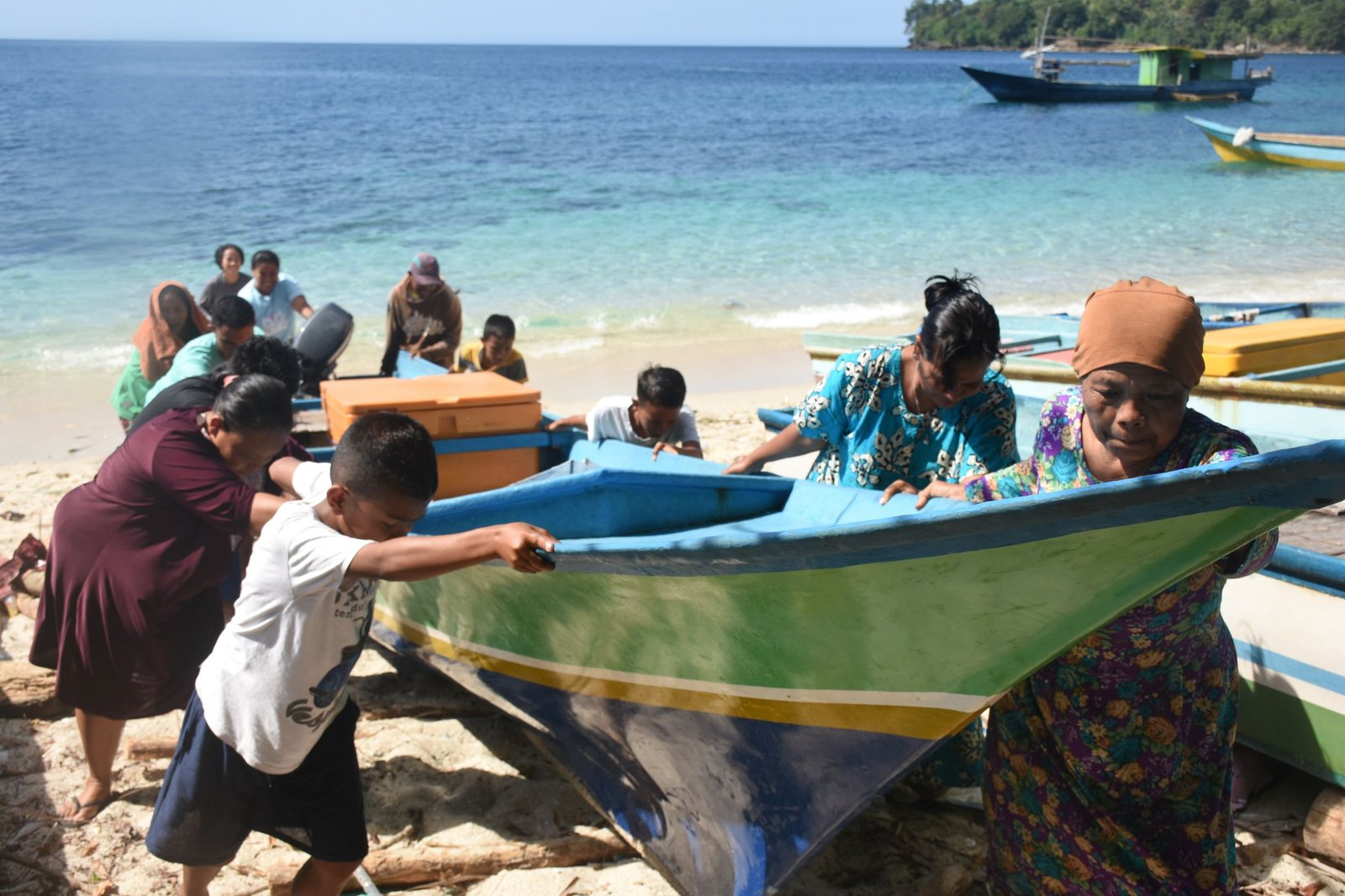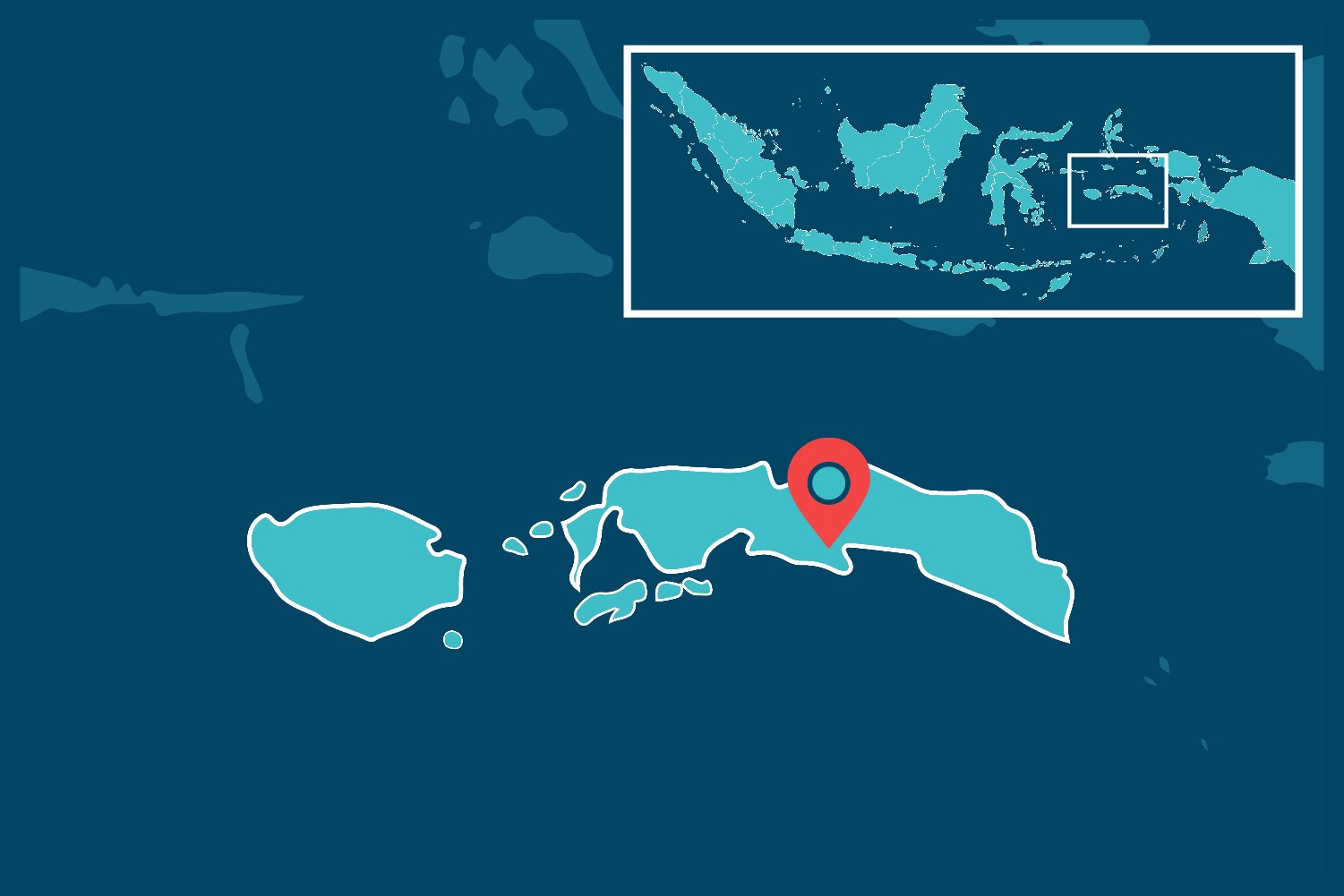We create the mechanisms and data inputs needed for adaptive fisheries management. This includes data creation, stakeholder engagement, and capacity building on EAFM principles.
What We Do

Fisheries Improvement

Community Organization
MDPI works to empower, embolden, and strengthen coastal communities’ capacities to actively participate in fisheries management and advocate for community well-being.

Traceability Technology
MDPI is the leader of traceability-based technology implementation to capture events and data from hook to plate to ensure the small-scale fisheries are in compliance with the regulations.
Fisheries Improvement

MDPI is a national leader in the design and implementation of data collection and capacity development activities for the small-scale fisheries sector.
Working to support broader adaptive fisheries management objectives in Indonesia, our approach is two-fold:
- Data Creation
MDPI focuses on improving the availability of small-scale fisheries data, with the aim of developing a system that allows the industry to easily participate in the improvement process. By establishing port-side data collection and creating pathways for this data to reach the government, MDPI supports adaptive fisheries management. Having established a robust data collection protocol, MDPI currently collects and validates data across 12 sites. Collected data is analyzed bi-annually and shared with partners. The Ministry of Marine Affairs and Fisheries incorporates MDPI’s catch data into its national database for inclusion into Indonesia’s IAW Tuna Harvest Strategy and annual RFMO reporting requirements. MDPI’s data collection methodology has been adopted by partner organizations. - Governance
MDPI works with regency, provincial and national government stakeholders because we believe institutionalization of sound policies coupled with data to inform management is critical to long-term sustainability. MDPI has established six fisheries co-management committees to serve as platforms for data analysis and active fishery co-management that is inclusive of stakeholders who are often not at the table, like fishers and mini-plant suppliers. Each council meets bi-annually to discuss emerging fisheries management issues at the provincial level. - Capacity Building
The communities MDPI works alongside with, more often than not, have not been formally included in fisheries management and require active engagement and training to deepen their buy-in to the fishery improvement process. MDPI disseminates information and capacity building activities with topics ranging from the need for good and robust data, the importance of fisheries management, to quality and cold chain best practices, to updates on fisheries regulations, to procedures to combat and report Illegal, Unreported and Unregulated (IUU) fishing activities. In 2020, MDPI reached more than 3,000 stakeholders across the supply chain.
Community Organization

As our organization’s name suggests, we believe that without the engagement, development, and buy-in from communities improved fisheries management and sustainability outcomes will not succeed.
Early on in MDPI’s work we sought ways to not only engage communities but ensure that they received a direct benefit from fisheries management – whether that be an active voice in the management process or through financial gains. We were an early adopter of the USA Fair Trade program, as a platform to increase fisheries sustainability while also supporting social improvements within communities and supply chains.
As an implementer of the Fair Trade seafood standard in Indonesia, we are experts in community-driven development. A strong component of the Fair Trade model is the creation and development of associations. These associations are guaranteed a premium for fish that is sold through the Fair Trade program. However, in order for these associations to be able to leverage these funds, they have to be organized. This is where MDPI comes in.
We support the organization, vision/mission, objective, and activity development of fisher associations and cooperatives. It is not an easy process, but one that we have had exceptional success with. Today, MDPI supports the more than 50 fisher associations and is expanding our community organization work rapidly across provinces.
Traceability Technology

MDPI is a leader in the implementation of traceability-based technology (TBT) to capture critical tracking events and key data elements from hook to plate ensuring that small-scale fisheries are in compliance with national and export regulations.
Since 2013, MDPI has worked to crack the small-scale fishery technology nut. We develop systems and technology applications designed specifically for the small-scale sector, using either open source or low-cost platforms to make technology accessible to as many small-scale actors as possible. Through this approach, MDPI combats Illegal, Unregulated, and Unreported (IUU) fishing and ensures that small-scale fisheries are able to compete and maintain market access.
Through several public-private partnerships and university funded projects, MDPI has developed three unique technology platforms: I-Fish app (an electronic information system for data collection with offline functionality), Trafiz (a mobile catch documentation application that enables the first buyer or fish supplier to collect and submit traceability data), and TraceTales™ (a fully integrated production, inventory system for seafood processors). TraceTales™, which digitally captures data from raw material through processing, packaging, and shipping is used in eight processing facilities across Indonesia tracing more than 5,700 tons of fish in 2020.
TraceTales™ is now managed under PT Sahabat Laut Lestari (SLL).
MDPI is the implementing partner of the first fishery in the world to attain Fair Trade certification. With this certification, MDPI has been able to support communities in attaining and utilizing a premium fund ensuring that fishers receive thirty cents per kilogram exported. Building off the success of Fair Trade implementation, in 2020, MDPI fulfilled a long sought after goal, MSC certification. Both of these achievements were no small feat; building off nearly a decade of data collection activities, capacity development, fisher organization, fisheries management and governance improvements, as well as, technology, traceability, and transparency initiatives. As other fisheries seek certification, MDPI serves as a repository of best practice approaches. One essential component towards increased access to certification schemes is bringing small-scale fisheries towards legality.
